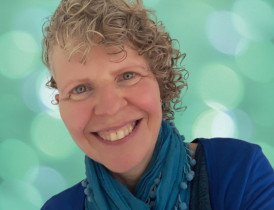Robyn Harris

In this section I will explore the feelings that we can experience following the loss of a person or thing that is close to us. It often results in a sense of grief or bereavement. This is a very natural response when something to which we are attached, disappears from our lives. We often associate this feeling with the death of a loved one but it can also be experienced at other times, for example divorce, the loss of a job, or having to move away from a place that is familiar to you. Some types of loss can be particularly difficult to cope with as they are often seen as less important in our society, for example miscarriage, stillbirth or the death of a beloved animal. People might not understand the depth of feeling that the sufferer is experiencing and will sometimes tell them to ‘pull themselves together’ and ‘move on’.
Loss can also be felt about an event which is anticipated but has not yet happened, for example children growing up and leaving home, the ageing process, or when a person or animal is given a terminal diagnosis and they and their family try to come to terms with the fact that they will probably die sooner than they had expected to.
Everyone’s experience of grief is highly personal and is based upon their unique perception of the situation (Shapiro, 1993). Events trigger different reactions in different people and our responses to trauma and emotional shock can vary hugely. They can also depend on our past experiences, beliefs and values. In addition they can be influenced by the other things going on in our lives at the time which can result in us feeling particularly vulnerable or sensitive. However there are a range of common emotions that people experience. These include feelings of sadness, anger, guilt, anxiety, loneliness, fatigue, helplessness, shock, yearning, emancipation, relief and numbness.
People can also experience a range of physical sensations such as tightness in the chest and throat, hollowness in the stomach and breathlessness. Thought patterns can be affected too, resulting in disbelief, confusion, preoccupation, hallucinations and a sense of the presence of the lost person or object. These might then lead to a range of behaviours including lack of sleeping, appetite disturbances, absentmindedness, social withdrawal, dreams of the deceased, avoiding reminders of the deceased, searching, calling out, sighing, restless overactivity, crying, visiting places or carrying objects that remind the survivor of the deceased and treasuring objects that belonged to the deceased (Worden, 2005; Geldard & Geldard, 2001; Bowlby 1980).
If you are currently experiencing any of these issues and would like to talk, please feel free to get in touch. There will be no obligation to make a booking, it's just an opportunity for you to ask any questions you might have and to see if what I offer might be a good fit for you. My contact details are:
07980 669303
If you would like to take a look at my website, you can find it at:
You can read the whole of this article here
Are you wondering about networking but feeling nervous about it?
Our FREE guide will help you to feel comfortable and confident when networking - even if you're an introvert!
Download your FREE guide now